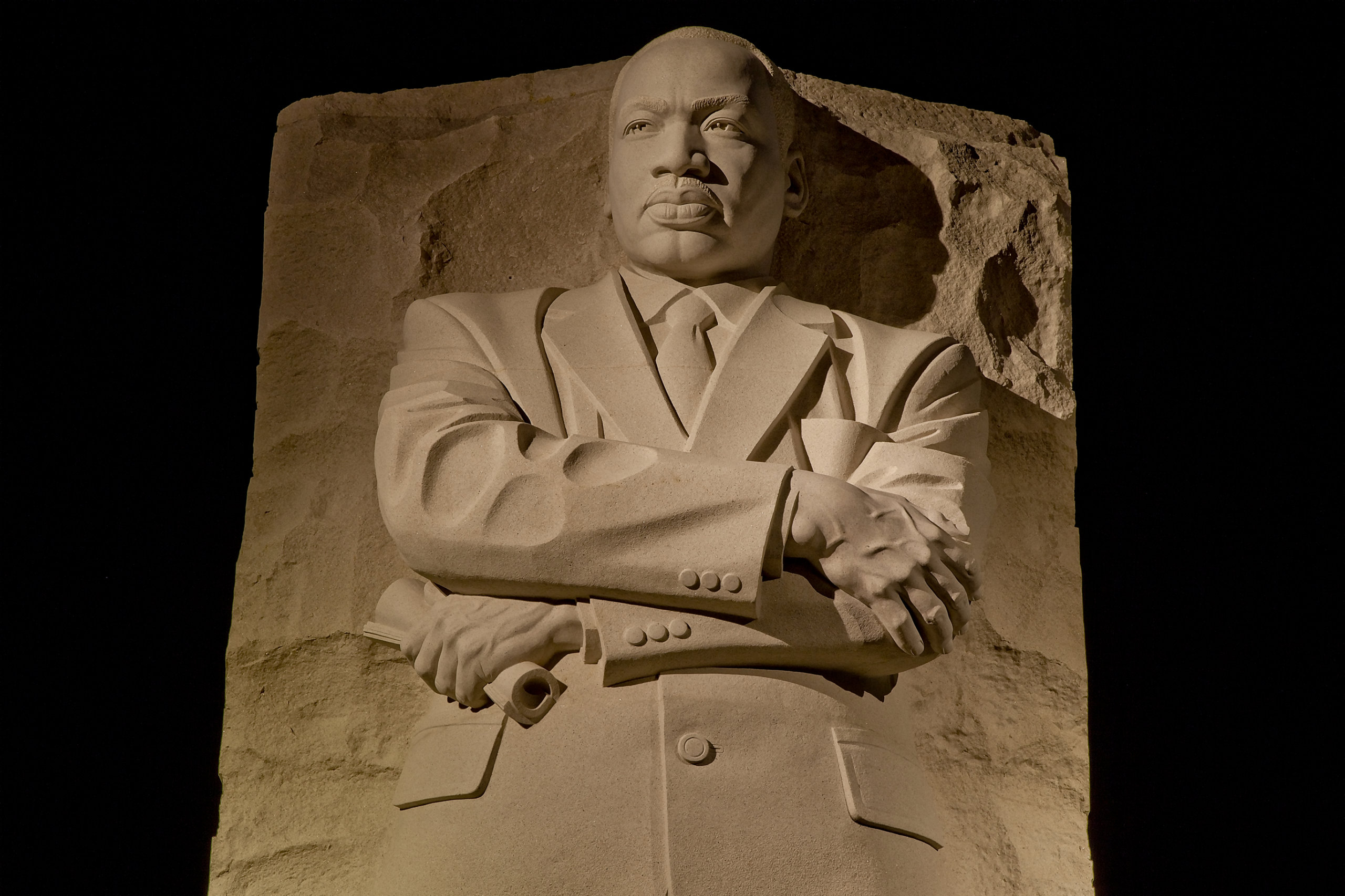Many Colorado Academy students know of the Reverend Dr. Martin Luther King, Jr.’s “I have a Dream” speech. The August 1963 speech, spoken at the March on Washington, is where King shared his idealistic vision for America. It drew a quarter of a million people for an overwhelming non-violent gathering at the United States Capitol. King’s hope for “genuine equality” was the true goal of the Civil Rights Movement.
In a lesser-known but equally important 1967 speech, titled “The Other America,” Dr. King laid out even more sweeping ambitions for full equality in American society. He noted that it would not be easy, saying, “It’s much easier to integrate a lunch counter than it is to guarantee a livable income and a good solid job. It’s much easier to guarantee the right to vote than it is to guarantee the right to live in sanitary, decent housing conditions. It is much easier to integrate a public park than it is to make genuine, quality, integrated education a reality. And so today we are struggling for something which says we demand genuine equality.”
He introduced “The Other America” to his audience at Stanford University. This speech was given 10 days after Dr. King came out against the Vietnam War, when he had begun to move in what some considered a more radical direction. He said, “And I use this subject because there are literally two Americas. One America is beautiful for situation. And, in a sense, this America is overflowing with the milk of prosperity and the honey of opportunity. This America is the habitat of millions of people who have food and material necessities for their bodies; and culture and education for their minds; and freedom and human dignity for their spirits. In this America, millions of people experience every day the opportunity of having life, liberty, and the pursuit of happiness in all of their dimensions. And in this America millions of young people grow up in the sunlight of opportunity.
“But tragically and unfortunately, there is another America. This other America has a daily ugliness about it that constantly transforms the ebullience of hope into the fatigue of despair. In this America, millions of work-starved men walk the streets daily in search for jobs that do not exist. In this America millions of people find themselves living in rat-infested, vermin-filled slums. In this America people are poor by the millions. They find themselves perishing on a lonely island of poverty in the midst of a vast ocean of material prosperity.”
Rather than try to appease white, northern voters, King offered a challenge that resonates today. By 1967, King had taken his fight for jobs and equality to northern cities. He pointed out in “The Other America” that “It’s not merely a struggle against extremist behavior toward Negroes. And I’m convinced that many of the very people who supported us in the struggle in the South are not willing to go all the way now. I came to see this in a very difficult and painful way in Chicago the last year where I’ve lived and worked. Some of the people who came quickly to march with us in Selma and Birmingham weren’t active around Chicago. And I came to see that so many people who supported morally and even financially what we were doing in Birmingham and Selma, were really outraged against the extremist behavior of Bull Connor and Jim Clark toward Negroes, rather than believing in genuine equality for Negroes. And I think this is what we’ve gotta’ see now, and this is what makes the struggle much more difficult.” (Note: Bull Connor and Jim Clark were two arch segregationists who led the police forces that violently tried to break up civil rights protests in Birmingham and Selma, Alabama.)
Sadly, we are living in a reality of two Americas. Inequality and racism still permeate our society. Racism was on painful display last week as anti-Semitic symbols and the Confederate flag were brought into the nation’s Capitol, and a gallows with a noose (a symbol of lynching) was erected near the building. It was as brazen as anything one could have seen among white supporters of segregation in the 1960s. The FBI is warning of armed protests in the days ahead. The timing of this all happening around the day when we stop to honor the Reverend Dr. Martin Luther King Jr. should not be lost on any of us. This holiday weekend, I will pause to reflect on the man whose legacy lives on in our social and political worlds. The holiday is considered a day of service, and I invite each of you to consider offering some time to lend a hand to another. Denver’s annual Marade (march and parade), in which many from our CA Community have participated in the past, will hold its events online this year due to the pandemic. You can take part in the online events by using this link.
I’m including the video of King’s The Other America speech. I encourage you to watch his steady delivery. He challenged us then, as he does now, to do our part to make a more just society. I think this year’s MLK Day observance is more important than ever. The full text of the speech, from which I shared direct quotes, can be found here.
